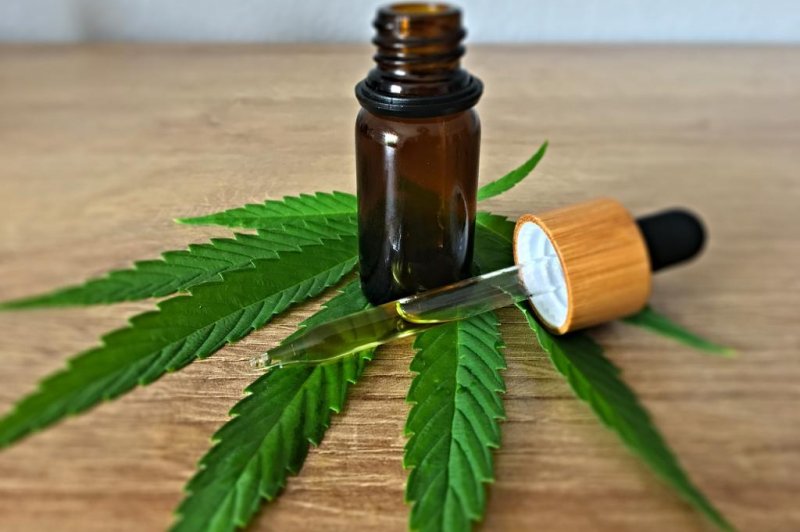
The U.S. Food and Drug Administration is moving forward toward evaluating CBD for use in dietary supplements, the agency said. Photo by CBD-Infos-com/Pixabay
DENVER, March 17 (UPI) -- The U.S. Food and Drug Administration moved closer this month toward evaluating CBD for human foods, topicals and pet products, but consumers and regulators still have unanswered questions about its safety.
The FDA is looking at safe daily doses, the different forms of CBD products and any health threats that the substance might present. These include potential liver toxicity and male reproductive problems, as well as side effects such as drowsiness, the agency said in a report submitted to appropriations committees in the U.S. House and Senate.
"We have made progress, but there are still areas where timely attention is needed," the agency said.
The FDA said it will produce a followup document for Congress within 180 days with the results of a sampling study of the current CBD marketplace "to determine the extent to which products are mislabeled or adulterated."
Senate Majority Leader Mitch McConnell, R-Ky., and others, have urged the FDA to approve CBD for dietary uses. The appropriations committees had requested a CBD overview report within 60 days in late December 2019.
"We are concerned that some people wrongly think that the myriad CBD products on the market have been evaluated by the FDA and determined to be safe, or that using CBD 'can't hurt,'" Dr. Stephen Hahn, the FDA's new commissioner, said in a statement.
The FDA's approval process for a new dietary ingredient can take three years or more. The popularity of CBD and internet commerce has raced ahead of the FDA's ability to prove its safety.
"We know one thing from the American people -- they're using CBD products," Hahn said in February. "We're not going to be able to say you can't use these products. It's a fool's game to try to even approach that."
Federal laws that forbid research on cannabis-derived products have delayed for years scientists who want to know more about how CBD works. The FDA is trying to catch up by issuing a call for private research on the effects of CBD products.
"Where it becomes a public health issue is when tons of people are self-dosing who-knows-how-much and who-knows-what quality," said Edgar Asebey, a Fort Lauderdale, Fla.,-based FDA regulatory life-sciences lawyer.
Even though CBD food-safety research might take several years, the FDA is very likely to issue stopgap guidance documents soon, attorney Asebey predicted.
The FDA might also look to other countries' health agencies for guidance, he said.
The United Kingdom's Food Standards Agency proposed a safe daily dose of 70 milligrams in January. The agency set up a regulatory path to reintroduce CBD over the next year, including removing some non-compliant products from the market by 2021.
"If you're selling CBD all over the country, there are minimal standards you'll need to follow for dietary supplements or foods. It's a special industry, but it's not that special," Asebey said. "There are federal guidelines for what you ask people to eat."
CBD, or cannabidiol, is marketed in a confusing number of products including kombucha, gummies, chocolate, hand cream, tinctures, oils, cosmetics and pet foods. But it still hasn't been fully approved by the FDA, even though several states have passed laws allowing the substance to be used products for people and pets.
Until hard-and-fast FDA rules are issued, consumers could remain confused about the bewildering number of non-regulated products available, those in the industry said.
Sticking with long-standing dietary supplement brands certified as food-safe under Good Manufacturing Practices guidelines, is a good bet, said Alan Lewis, director of special projects at Natural Grocers of Lakewood, Colo.
"You should not be buying CBD products at a gas station, not at a convenience store and not on Amazon," Lewis said. "Those bottles could contain anything -- or nothing."
FDA clarity will allow many more natural herbal supplement companies to produce CBD or hemp-based products, giving consumers more choices, said Michael McGuffin, president of the Silver Spring, Md.,-based American Herbal Products Association.
"We want FDA to regulate CBD and hemp products as dietary supplements with all the rules that apply," McGuffin said. "I know it's difficult to get there quickly, but the regulatory framework is significantly robust to regulate these products. "
No comments:
Post a Comment